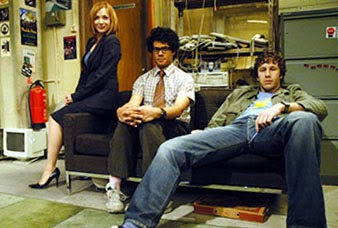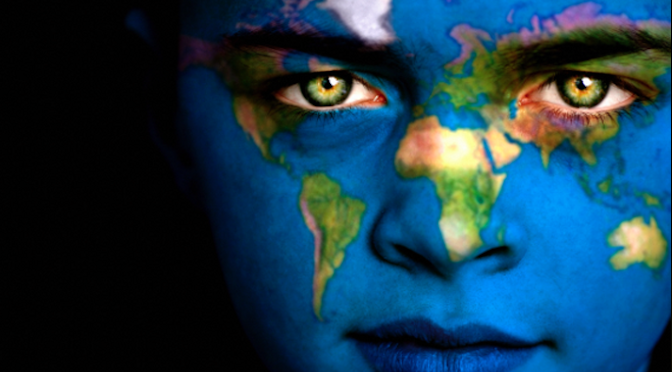The Earth is a crowded place now, we’ve filled it to every corner and have found ways into even the most inhospitable of places. From hot, arid deserts to frozen wastelands, if there’s an opportunity to be had, you’ll find a human being around there somewhere. We are the most adaptable creatures to have ever walked the Earth and we have spread so far that you cannot find any place not in some way claimed by us without going to the very depths of the oceans.
So it makes sense that in today’s age a lot of people wonder about the effects there are on us as a people when we have no where left to go. There are no new countries to be founded, no new lands to explore. We must accept where we are and that means dealing with neighbors that we cannot change. Human expansion has gone from a physical act to a purely academic one and that can be frightening. Do we find middle ground with those neighbors or do we cut ties to them?
A World United
Typically when you live in a town that small you lose the ability to see the world outside. It’s hard to really understand other cultures if you’re only exposed to a fraction of a fraction of the world’s population at any given time. The easiest places to find true prejudice or ignorance are the smallest of towns in the most out of the way places. It’s often said that people who hold onto old hatreds have held onto the past, but the truth is often that time had forgotten them as they lived in their pocket of the world. It is just so easy to live inside a bubble and not realize how you see the world isn’t necessarily the truth.
 |
| Pictured: A man who didn’t realize there was racism in the 60s. |
As a result of this, despite all of the drawbacks of living where I do, I can appreciate my town for one thing. As I’ve said before, my childhood home, despite having my lily-white ass in it, was around 80% Hispanic. I often thought it was rather appropriate that our High School chose the Aztecs as their school mascot. For some towns this selection might have been seen as stereotyping or cultural hijacking. But in a town with as many second or third generation Mexican immigrants as there were there, it’s simply acknowledging your roots.
So I’ve long realized there was a world beyond mine, a place where the majority of people spoke Spanish first instead of English and where everyone looked more like them than like me. I went to High School with a few Asian kids as well and lived next to a Native American artist who painted beautiful murals on his walls and included a dream-catcher on his lawn as he landscaped it. I grew up, despite living in a small town, with a view of the world outside my own. But even I fell into something of a bubble without realizing it.
Speaking with a long-time online friend some time ago, I found out that he had never actually heard someone speaking Spanish in person before. He’d lived in Colorado his entire life and he’d never really been to a place where minorities had a large population. During a short trip outside of his usual area, he ended up in a small town off of his usual beaten path and suddenly discovered that there was a place that sounded an awful lot like my home town not far from where he lived.
He described it as unnerving.
He’d never encountered a place like where I’d lived my whole life and it was like stepping into another world for him. Nothing felt familiar anymore, nothing felt like what he’d known. He wasn’t racist or hateful, but he didn’t understand and he didn’t feel comfortable. It was like he had become lost and didn’t know his way home.
And that, at its core, is why people get so paranoid about the idea of globalization. Our culture is our world and changing that culture changes that world. For a lot, that unfamiliar feeling is like leaving home and leaving where you belong. It’s almost inevitable so many would be afraid of immigration, outsourcing and international influence. But these people are only responding to fear, rarely to rational judgment.
 |
| It could be worse, after all. It could be these assholes. |
I’ve met quite a few people who are absolutely terrified of the concept of a “New World Order” that would unite the planet into a somewhat stable planetary government. Part of what drives their fear is the fact they’ve heard prophecy that world peace is the first step towards Armageddon, but the other end is that fear of losing the familiar. When the global economy starts to regard people in China as equally as people in the United States, we may have to see more people learning Chinese to communicate with them. When we have to start dealing with Europe in a more direct fashion, we may actually have to start respecting their cultural differences from our own. When everyone is equal, we’re going to have to put in a lot more effort.
These fears, in my eyes, are silly. You don’t have to be afraid of not knowing a language, it won’t damage your way of life to learn it either. You don’t have to worry about there being music or art that doesn’t quite mesh with what you grew up with. Everyone goes through it regardless of whether that art or music came from another country or just came from another generation. Hell, some of our worst imports have come from cultures almost identical to our own and look at where those ended up.
 |
| You can actually see the moment when he realizes this isn’t a photo shoot. |
Damn it Whedon, I was making a point.







